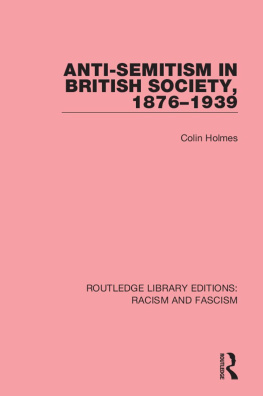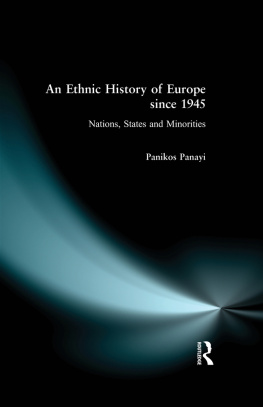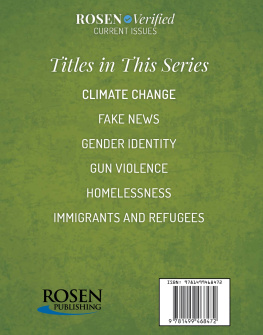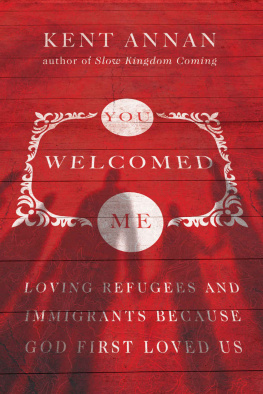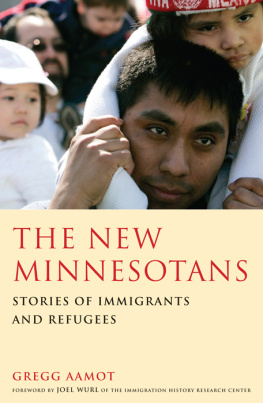ROUTLEDGE LIBRARY EDITIONS: RACISM AND FASCISM
Volume 1
A TOLERANT COUNTRY?
A TOLERANT COUNTRY?
Immigrants, Refugees and Minorities in Britain
COLIN HOLMES
First published in 1991 by Faber and Faber Limited
This edition first published in 2016
by Routledge
2 Park Square, Milton Park, Abingdon, Oxon OX14 4RN
and by Routledge
711 Third Avenue, New York, NY 10017
Routledge is an imprint of the Taylor & Francis Group, an informa business
1991 Colin Holmes
All rights reserved. No part of this book may be reprinted or reproduced or utilised in any form or by any electronic, mechanical, or other means, now known or hereafter invented, including photocopying and recording, or in any information storage or retrieval system, without permission in writing from the publishers.
Trademark notice: Product or corporate names may be trademarks or registered trademarks, and are used only for identification and explanation without intent to infringe.
British Library Cataloguing in Publication Data
A catalogue record for this book is available from the British Library
ISBN: 978-1-138-93422-1 (Set)
ISBN: 978-1-315-66966-3 (Set) (ebk)
ISBN: 978-1-138-94043-7 (Volume 1) (hbk)
ISBN: 978-1-315-67435-3 (Volume 1) (ebk)
Publishers Note
The publisher has gone to great lengths to ensure the quality of this reprint but points out that some imperfections in the original copies may be apparent.
Disclaimer
The publisher has made every effort to trace copyright holders and would welcome correspondence from those they have been unable to trace.
A TOLERANT COUNTRY?
Immigrants, Refugees and Minorities in Britain
Colin Holmes
First published in 1991
by Faber and Faber Limited
3 Queen Square London WCIN 3 AU
Photoset by Parker Typesetting Service Leicester
Printed in Great Britain by
Clays Ltd St Ives plc
All rights reserved
Colin Holmes, 1991
Colin Holmes is hereby identified as author of this work in accordance with Section 77 of the Copyright, Designs and Patents Act 1988.
This book is sold subject to the condition that it shall not, by way of trade or otherwise, be lent, resold, hired out or otherwise circulated without the publishers prior consent in any form of binding or cover other than that in which it is published and without a similar condition including this condition being imposed on the subsequent purchaser.
A CIP record for this book is available from the British Library
ISBN 0571154263
Contents
A Tolerant Country? reflects my interest in the responses encountered by immigrants, refugees and minorities in Britain.
In a brief monograph it is possible to concentrate on only a limited number of themes and I have dwelt upon those issues and developments which are of particular interest to me. The format of the Faber Historical Handbooks requires that the book is written with the intelligent general reader in view, but I hope it will circulate also among a more specialized audience. The books in the series are traditionally light in footnotes: such notes appear essentially for the purpose of identifying quotations. A reader wishing to pursue any of my themes in greater detail will be assisted by the working bibliography.
I drew a line under my reading for the book in the opening days of 1990. The perceptive reader will recognize one or two passing comments of topical significance which were inserted after that date. Such are the trials of writing contemporary history.
In the course of producing the book I have incurred a number of debts. My thanks go in particular to Tony Kushner, Kenny Lunn, David Mayall and Panikos Panayi, four members of the Sheffield School specializing in the history of immigration and minorities. Each has offered sound advice: none is responsible for the final draft. Avner Offer and Michael Thompson, the joint editors of Historical Handbooks, also advanced their opinions. Faber and Faber waited patiently for the final version. Valerie Heap typed my text into a finished state, aided by the ever-dependable Susan Sharman and Maveen Smallman. Finally, my family, to whom I am once again indebted, created the space in which, eventually, I could bring the project to fruition.
Colin Holmes
Sheffield
Few people in Britain can be unaware of the process of immigration which the country has experienced since the end of the Second World War. However, not many historians have displayed any interest in this development or indeed in the longer chain of immigration into Britain. This neglect has embraced not only immigrant newcomers who for economic, social or cultural reasons, or a mixture of such influences, left their native countries for a temporary or permanent stay in Britain. Refugees who sought shelter on account of racial, religious or political persecution have also been neglected. The result is that anyone who turns to standard histories of Britain finds immigration, and the hopes, aims and aspirations of the individuals caught up in it, reduced to passing incidental comments, relegated to the footnotes or, more seriously, totally ignored, consigned for ever into historical darkness.
It is not only immigrants and refugees who have been marginalized or obliterated in this fashion. The history of many minority groups, characterized by a sense of group consciousness, who can trace their origins to immigration, whether directly or through descent, has also been widely ignored. If the descendants of immigrants from the Caribbean and the Indian sub-continent who came to Britain after the Second World War have received searching, sometimes obsessive, attention from social scientists, little interest has been shown in the history of these minorities. In the case of some other groups the silence is total. There is no general study of the Irish in Britain which carries comprehensive detail on the second and third generations of Irish descent. The Polish-descended minority has been similarly ignored. Any historian enquiring whether Britain has been remarkable for its toleration towards immigrants, refugees and the minorities related to these groups needs to recognize how many pieces are still missing from the overall historical jigsaw.
The bulk of the evidence deployed here is therefore drawn from the experiences of the first-generation immigrants and refugees, and in examining responses towards these groups a wide sweep of recent history is covered. A useful starting point for any such enquiry is 1871, in other words, one hundred years before the important 1971 Immigration Act. Before embarking on this survey, however, it is important to set the scene by examining contemporary developments, concentrating on the years since 1979, the period of Thatcherism.
In contrast to the relative neglect of groups such as the Hong Kong Chinese, Chilean exiles, the boat people of Vietnam, the Tamils from Sri Lanka, unauthorized immigrant workers from the Philippines and Latin America, as well as various Europeans, abundant contemporary material, though of sharply varying quality, is available on Blacks (those of Afro-Caribbean descent), and also on Asians deriving from the Indian sub-continent. It is upon these Blacks and Asians that attention is focussed initially. No attempt is made to recover the full range of their recent past: the enquiry concentrates on whether or not the groups have been tolerated.


